June 16, 2025 | 19:29 GMT +7
June 16, 2025 | 19:29 GMT +7
Hotline: 0913.378.918
June 16, 2025 | 19:29 GMT +7
Hotline: 0913.378.918
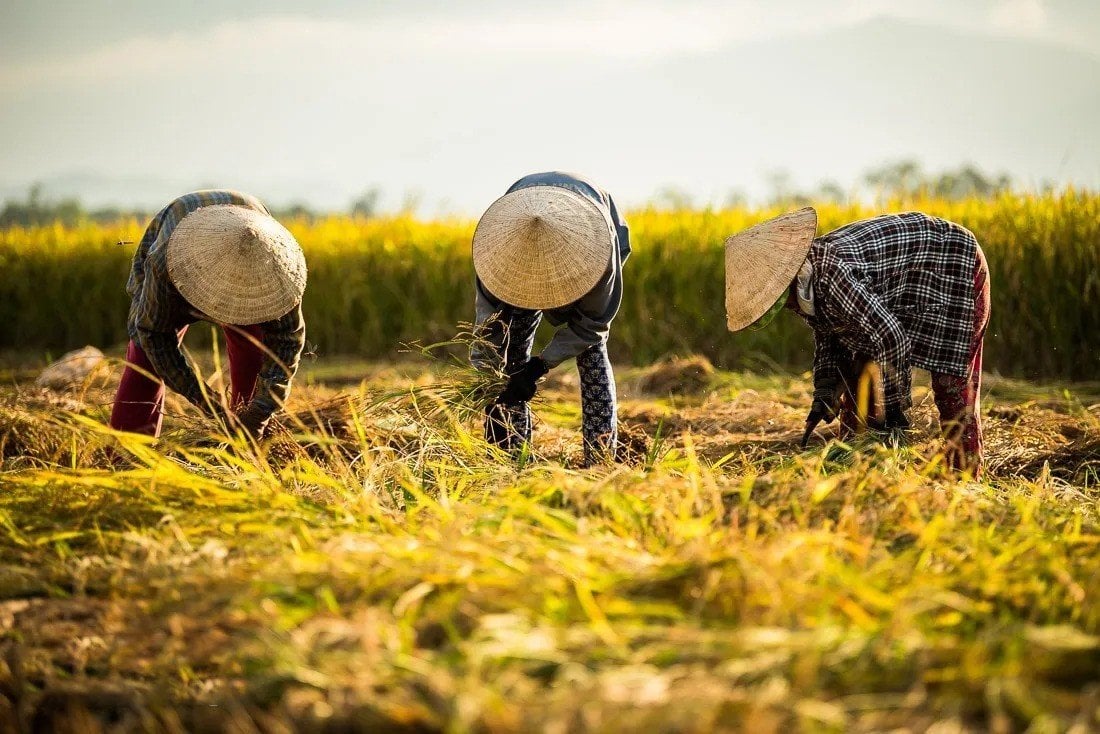
Thousands of years of ups and downs by the fields and rice, Vietnam continues to make firm steps into the future.
The "Tich Dien" ritual when kings and lords go to plow the fields with farmers has been passed down to this day and is a vivid cultural expression of a country that focuses on agriculture. Entering into folk songs, blending with everyday lifestyle and mindset, rice plants bloom throughout the country's history.
For many generations, Vietnamese farmers have had this simple dream: “Pray that our village’s seedlings grow as good as berries, the plant is as tall as our head, the panicle is as big as a reed”. Whether rich or poor, rice is present in every main meal. Whether it is breakfast, lunch or dinner, a bowl of rice is there.
On the day to honor the memory of the deceased, there is also a bowl of rice and water on the altar, so our people also call it “rice offering day”. In the treasury of folk songs and national sayings, images of rice plants, rice grains and farmers are always rich and diverse: "When you see glutinous rice, you crave sticky rice. Sitting next to a basket of rice, you miss the pot of fragrant rice”.
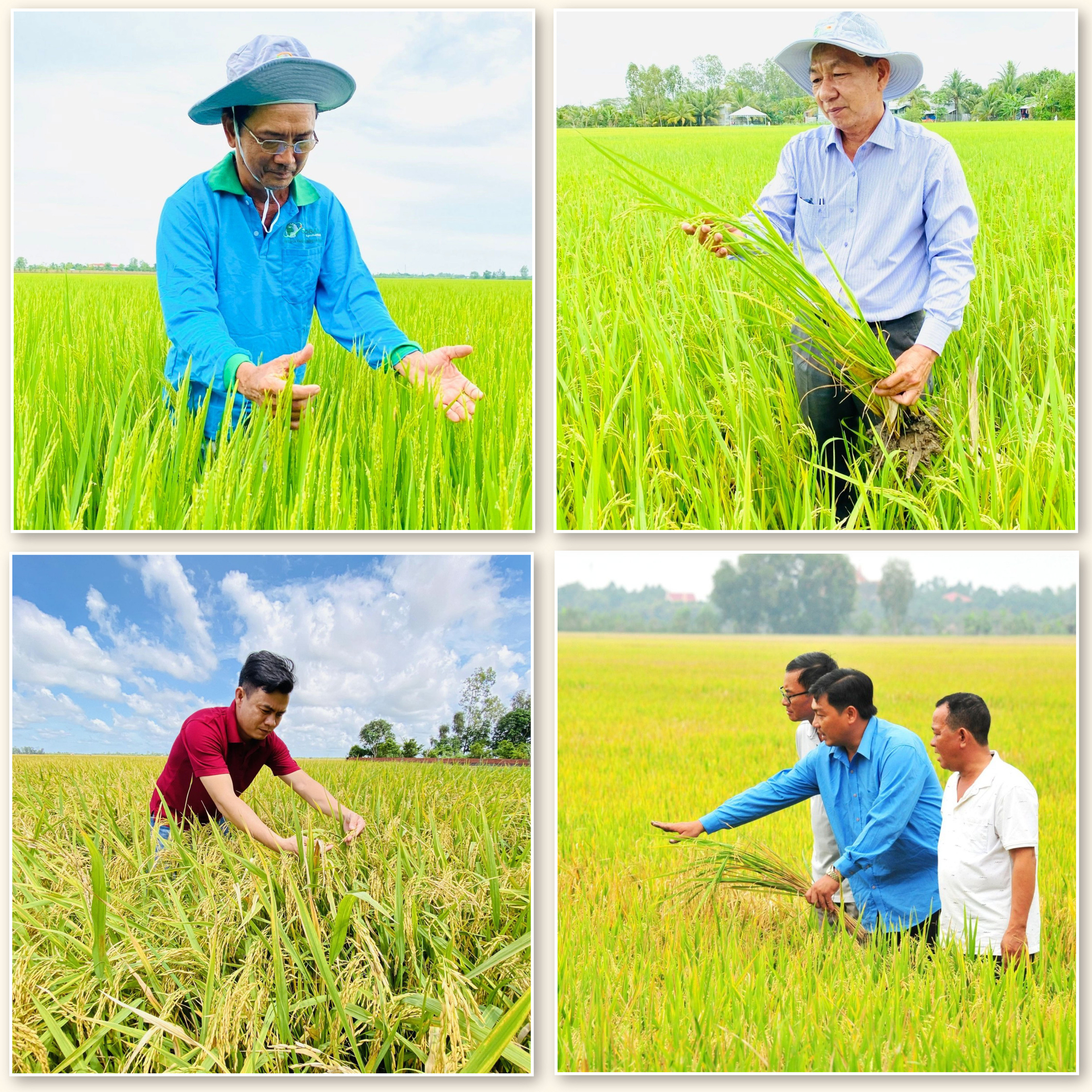
From "eat well and dress warmly" to "eat well and dress well", the song "praise the rice plant" sounds like adding joy, motivation and pride to rice growers.
Milestones stretch over the years. The burned granaries and the famine in 1945 still lingered in the minds of many generations of Vietnamese people. The memory of the grain famine still haunts the elderly. Grains of rice contained in cloth bags wrapped around the soldiers on their march to battle towards the day of triumph. The barrier "blocking the river, banning the market" sometimes caused rice growers to have their daily meals mixed with vegetables and cassava. The country of vast rice fields “straight from the wings of a stork”, beautiful terraced fields like an ink wash painting also has its time of having bearly any food to eat.
And the miracle happened. Vietnam became one of the world's leading rice exporters, following its achievements in ensuring food security in the country. Everything started with breakthroughs in agriculture. Being empowered more and more, farmers were contracted for arable land. The grains from the fields become rice products going to the market. Rivers are no longer blocked, markets are no longer banned, rice flows everywhere.
Agronomists stepped in and created many hybrid varieties with higher yields, shorter growth times while being able to adapt to each region’s condition. The life cycle of rice plants changes the life cycle of rice growers. From "eat well and dress warmly" to "eat well and dress well", the song "praise the rice plant" sounds like adding joy, motivation and pride to rice growers.
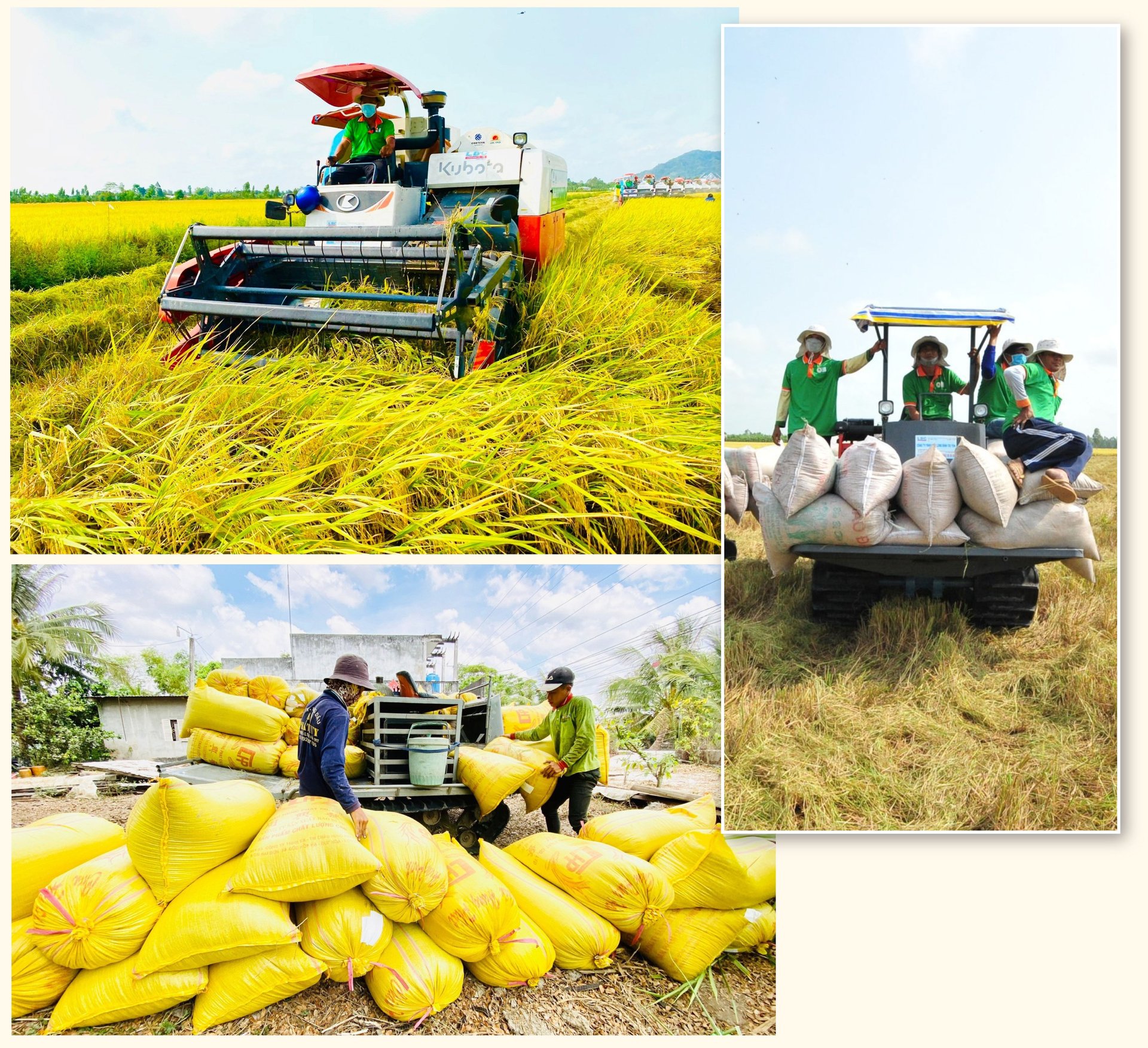
Vietnam's rice industry aims for the goal of "quality, circularity, low emissions".
But “Man proposes, God disposes”, there were times when rice was put in a tough spot, and farmers' shoulders felt heavier than ever. Climate change makes natural disasters and epidemics more erratic. Due to market volatility, exports sometimes don’t go as planned. Changing consumption trends make rice grains subject to many strict standards on food safety, traceability, and emission reduction. Yield has increased, but soil nutrients gradually degrade. If rice plants do not cling to the soil to grow, they must be treated with fertilizers. Using fertilizers the wrong way becomes abuse. As a result, production costs increase, income is eroded right from the input phase. Meanwhile, output and prices are always subject to the market’s law of supply and demand.
Statistics show that high yields no longer mean high income for rice growers. So Vietnam starts its journey of changing from "agricultural production thinking" to "agricultural economic thinking". Change has begun on every field, from farmers to businesses, managers, and scientific experts.
Like walking while looking for a path, finding stones across a river, all things are difficult at first. There is a measurable change, but not enough to convince the farmers. They have to see with their own eyes and hear with their own ears to have a basis for comparison and contrast with what they always think and do, which are based on generations of experience.
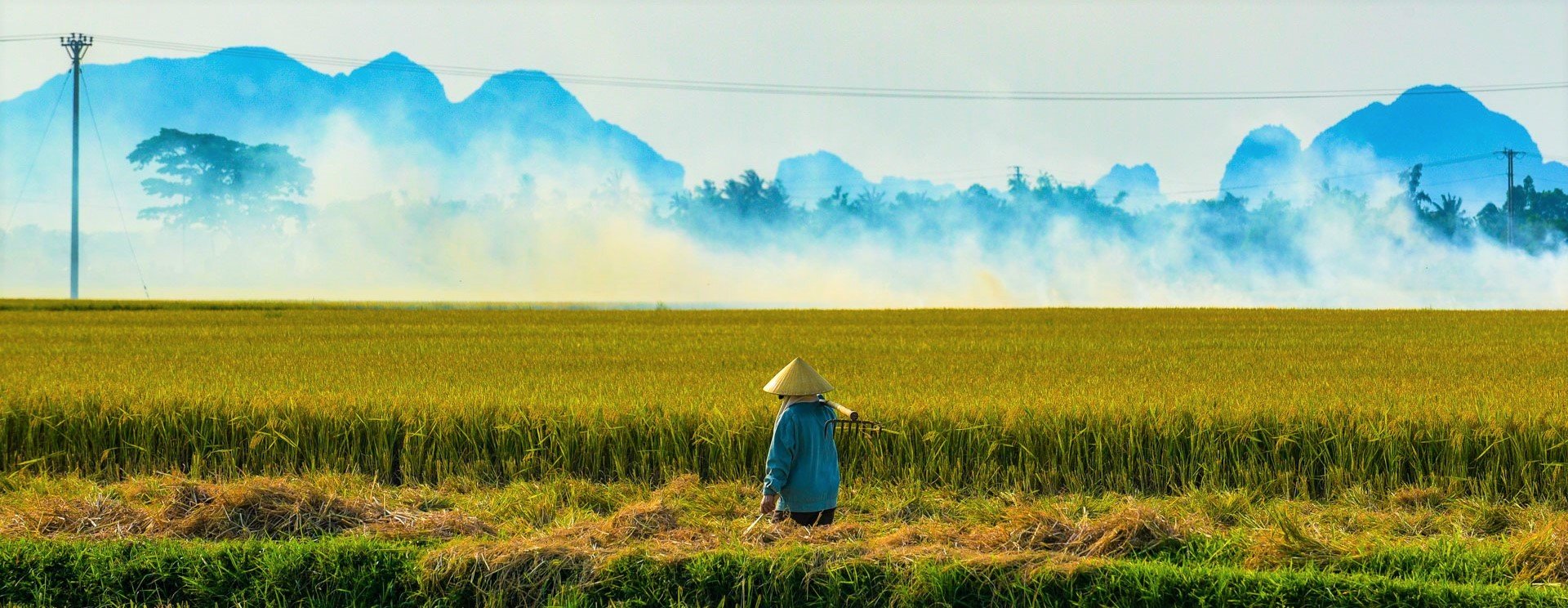
The rice grains of the Red River Delta - the cradle of wet rice civilization and the "rice of heaven and earth" from the South nourished those who walked the path to open new lands.
A new revolution begins. Vietnam's rice industry aims for the goal of "quality, circularity, low emissions". These concepts are not new, but they sketch an entire journey to approach the trend of the times, towards creating a rice brand in the international market. From the time the grain of rice in the field to when it reaches the consumer is a close structure in the commodity chain. Whether that structure is sustainable depends on the industry ecosystem. In that ecosystem, people are the decision-makers. Cooperation and association are like a meaningful imperative that decides how far rice can go.
The scheme “1 million ha of specialized high-quality, low-emissions rice” in the Mekong Delta combined with the schemes on “forming agricultural logistics system" and "enhancing agricultural mechanization" will re-image Vietnamese rice and gradually spread its name to other lands. The rice industry chain starts from varieties, farming processes, harvesting and post-harvest technology, preservation, processing, packaging, to being present in consumers' meals. The commodity chain needs science, technology and intellectualization of rice growers, associated with the collective economy and land concentration. The industry begins its approach to new keywords: "less is more", which seems like a paradox at first glance.
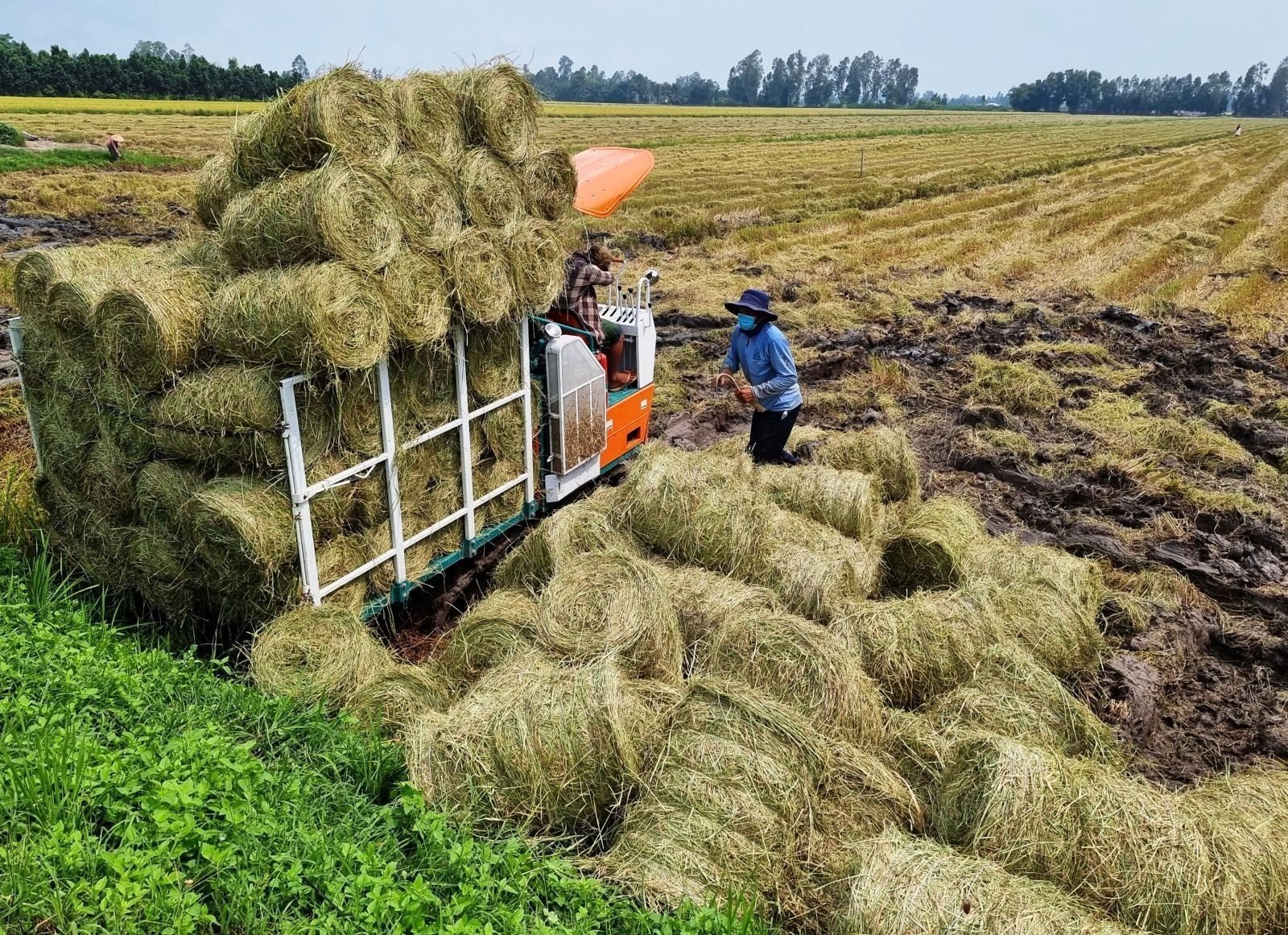
Simply put, circular agriculture means having no such thing as waste.
The world has entered the era of science and technology, the rice industry must take advantage of and absorb the results of artificial intelligence, internet connection, big data, field digitization, and industry digitization.
Simply put, circular agriculture means having no such thing as waste. Straw can become substrate, create electricity, or become construction materials. The development of the rural economy creates more livelihoods for rice growers, bringing benefits to people not only from the grains but also from other parts of the rice plant.
Translated by Samuel Pham

(VAN) The working delegation from the Ministry of Agriculture and Environment conducted an important trip to the Netherlands to strengthen strategic partnerships and sustainable development in the agricultural sector.

(VAN) The letter ‘A Plea from the Ocean’ not only evokes emotion but also awakens the human conscience to the responsibility of protecting life on Earth.

(VAN) The Department of Agriculture in South Africa has announced the country’s first mass vaccination of poultry to prevent local birds from contracting avian influenza.

(VAN) Establishment of the Mekong Delta Regional Agricultural Linkage Center, aiming for a closed value chain, deep processing, trading platforms, and international market connectivity.

(VAN) Gia Lai province has recently recorded 460 rare species of animals and plants, contributing to forest conservation and biodiversity planning in the region.

(VAN) Ms. Caroline Beresford, New Zealand Ambassador to Vietnam, expressed confidence that agricultural cooperation between Vietnam and New Zealand will develop sustainably, be climate-resilient, and promote gender equality.

(VAN) Vietnam reaffirms its commitment to international cooperation in fostering sustainable and responsible fisheries while ensuring resilient livelihoods for small-scale fishing communities.